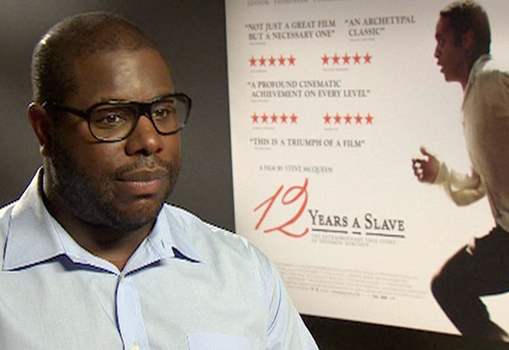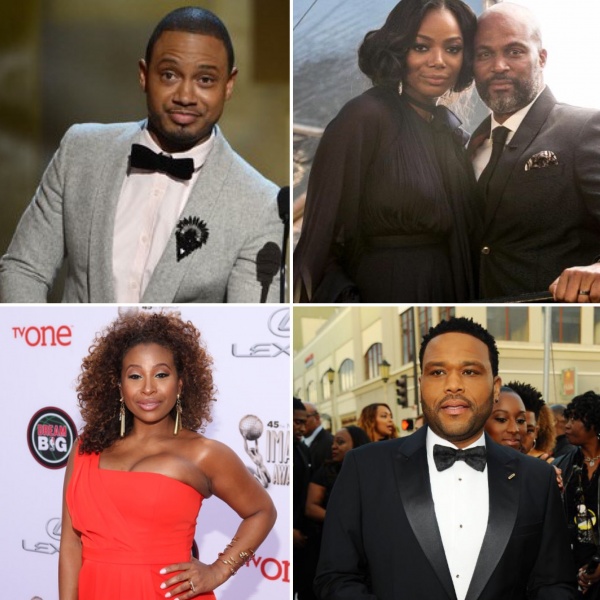 12 YEARS A SLAVE INTERVIEW with Director Steven Rodney McQueen
12 YEARS A SLAVE INTERVIEW with Director Steven Rodney McQueen

By: Kam Williams
Artist and filmmaker Steven Rodney McQueen was born in London on October 9, 1969. His critically-acclaimed directorial debut, Hunger, won the Camera d’Or at the 2008 Cannes Film Festival. He followed that up with the incendiary offering Shame, a well-received, thought-provoking drama about addiction and secrecy in the modern world.
In 1996, McQueen was the recipient of an ICA Futures Award. A couple of years later, he won a DAAD artist’s scholarship to Berlin. Besides exhibiting at the ICA and at the Kunsthalle in Zürich, he also won the coveted Turner Prize. He has exhibited at the Art Institute of Chicago, the Musee d’Art Moderne de la Ville de Paris, Documenta, and at the 53rd Venice Biennale as a representative of Great Britain.
Steve and his wife, cultural critic Bianca Stigter, live and work in Amsterdam, which is where they are raising their son, Dexter, and daughter, Alex.
In this interview, McQueen talks about his latest film, 12 Years a Slave, which has been nominated for 9 Academy Awards, including Best Picture and Best Director.
Kam Williams: Hi Steve. Thanks for honoring me with the opportunity to interview you.
Steve McQueen: Thanks so much for the interest, Kam.
Williams: Editor/Legist Patricia Turnier asks: What does it mean to you to be in charge of adapting Solomon Northup’s memoir? How do you explain that his autobiography was buried for around a hundred years contrary to those of some of his contemporaries like Frederick Douglass?
McQueen: I feel tremendously honored but I also feel a tremendous responsibility because through this film we can bring Solomon Northrup’s memory to the surface. His story was buried for so long. When the book first came out in 1853, it was a phenomenal best seller for its time, and sold 27,000 copies in 18 months. But what happened was Uncle Tom’s Cabin was published the following year, and that was it for 12 Years a Slave. It fell into obscurity. Academics knew about the memoir but it otherwise became lost. To me, it was always like the American equivalent of The Diary of Anne Frank. That’s why it became my passion to get this film made.
Williams: Harriet Pakula-Teweles asks: In a film described as a historical drama, how do you establish a healthy balance between history and drama?
McQueen: By relying on the book. As a filmmaker I was interested in illustrating the history of what slavery was about, which was slave labor. In the background of one frame, for example, you see sugar cane. In the second plantation, you see logging. And on the third location, we see corn. So, at the same time you’re following Solomon’s adventure of trying to get home, in the background you simultaneously see the horrors and pains of what slavery was about.
Williams: What interested you as a Brit in an African-American story?
McQueen: The story’s not just an African-American story. It’s a universal story. It’s a world story. My parents are from the West Indies. My father’s from Grenada which is where Malcolm X’s mother was born. My mother was born in Trinidad which is where Stokely Carmichael, the man who coined the phrase “Black Power!” was born. Sidney Poitier was born in the Bahamas. I’m part of that diaspora of people displaced by the slave trades. I’m part of that family. It’s our story. It’s a global story.
Williams: My grandparents were born St. Croix, St. Kitts and Barbados. Do you eat any West Indian food like curried goat, callaloo or roti?\
McQueen: Yeah, all of that. And then, when you go to New Orleans, you find similar dishes. We’re all family!
Williams: How did you settle on Chiwetel as Solomon Northrup?
McQueen: Chiwetel was always the one I wanted to make the movie with because there’s a certain humanity and gentility about him that I needed for the lead role. Solomon was a person who maintained his humanity whatever his circumstances, and I needed someone of that same caliber, because he would be tested to the breaking point. I needed an actor who could hold up during those moments of extreme stress.
Williams: Why did you use the great Michael Fassbender in each of your films?
McQueen: I think Michael is the most influential actor of his generation. He’s like a Mickey Rourke or a Gary Oldman. People want to be him. Actors want to act with him. Students choose to pursue acting because of him. I was very fortunate to land him for Hunger. We’ve been close friends ever since. He’s an amazing actor I will always want to work with.
Williams: How did you assemble such a top-flight cast: Benedict Cumberbatch, Paul Giamatti, Brad Pitt, Quvenzhane Wallis, Paaul Dano, and newcomer Lupita Nyong’o.
McQueen: I had huge help from the casting director, Francine Maisler. She did an incredible job. We auditioned over a thousand girls for the role of Patsey. And we ended up with Lupita who hadn’t even graduated from acting school yet. But she auditioned for us, and that was it. A star was born!
To see a trailer for 12 Years a Slave, visit:
http://www.foxsearchlight.com/post/3764/12-years-a-slave-official-hd-trailer/
Source: http://tntribune.com/entertainment/the-12-years-a-slave-interview/






